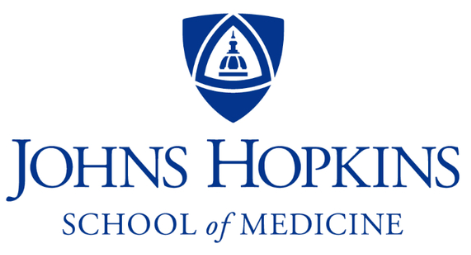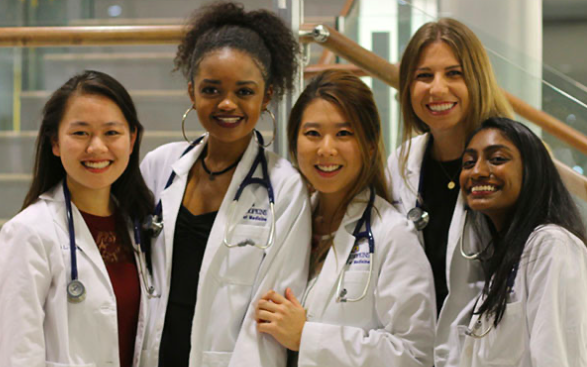Johns Hopkins School of Medicine Requirements and Tuition

Rebecca Nolan
Group Content Manager
Johns Hopkins University School of Medicine is a top-tier medical school that offers rigorous and comprehensive medical education. The university has state-of-the-art teaching facilities and a vibrant student life that includes a wide range of extracurricular activities. With a strong commitment to diversity and inclusion, students at JHU School.

About
Johns Hopkins University School of Medicine is a leading medical institution located in Baltimore, Maryland. The university is accredited by the Middle States Commission on Higher Education and the Liaison Committee on Medical Education. Students who graduate from JHU School of Medicine have the opportunity to go on to residencies and fellowships at top-tier medical facilities across the country.

Medical Programs Offered
Johns Hopkins University School of Medicine offers an MD program which is a traditional four-year medical school curriculum. It includes two years of classroom and laboratory work followed by two years of clinical rotations. The medical school also offers a combined MD/PhD program which is designed for students who want to combine research and clinical practice. The teaching facilities at JHU School of Medicine are state-of-the-art. Facilities include lecture halls, anatomy labs, simulation labs, and clinical spaces.
Teaching and Curriculum at Johns Hopkins University School of Medicine
Johns Hopkins University School of Medicine offers a comprehensive and rigorous curriculum that prepares students to become exceptional physicians and medical researchers. The curriculum is designed to equip students with the knowledge, skills, and values needed to excel in clinical practice, research, and leadership roles.
Here is a brief overview of the curriculum at Johns Hopkins University School of Medicine:
First and Second Year:
The first and second-year curriculum is focused on building a strong foundation in the basic sciences. Students take courses in anatomy, biochemistry, cell biology, genetics, immunology, microbiology, neuroscience, pharmacology, physiology, and pathology. They also participate in clinical skills training and begin to learn how to interact with patients.
Third Year:
During the third year, students begin their clinical rotations. They work alongside experienced physicians in a variety of specialties. These include internal medicine, surgery, pediatrics, obstetrics and gynecology, psychiatry, and neurology. This year provides students with the opportunity to apply their knowledge and skills in real-world clinical settings.
Fourth Year:
The fourth year is a time for students to explore their interests and develop their expertise in specific areas of medicine. Students can choose from a wide range of elective courses and rotations in specialties such as cardiology, dermatology, emergency medicine, oncology, radiology, and more. Fourth-year students also complete a capstone project in which they design and carry out a research project or quality improvement initiative.
In addition to the core curriculum, Johns Hopkins University School of Medicine offers a variety of enrichment opportunities for students. Some include research experiences, service-learning projects, and international electives. The curriculum is constantly evolving to meet the changing needs of the healthcare system and prepare students for the future of medicine.
Admissions Requirements
The admissions requirements for Johns Hopkins University School of Medicine include a bachelor’s degree from an accredited institution, a minimum GPA of 3.0, and a minimum MCAT score of 510. The school also requires applicants to complete coursework in biology, chemistry, physics, and math. In addition, applicants must submit letters of recommendation, a personal statement, and participate in an interview. JHU School of Medicine offers a graduate entry pathway for students who have completed a graduate degree in a related field.
Average GPA | Average MCAT | Applicants | Class Size |
| 3.91 | 518 | 6,526 | 120 |

Student Life
The student life at Johns Hopkins University School of Medicine is vibrant and diverse. Students have access to a wide range of extracurricular activities, including student organizations, sports teams, and volunteer opportunities. The university also has a strong commitment to diversity and inclusion. It also hosts events throughout the year to celebrate different cultures and promote understanding.
Extracurricular Activities
There are many extracurricular activities available to students at Johns Hopkins University School of Medicine. Some of the popular student organizations include the American Medical Association (AMA) chapter, the Emergency Medicine Interest Group, and the Global Health Interest Group. The university also has several sports teams, including basketball, soccer, and volleyball, and hosts intramural sports leagues. Additionally, students have the opportunity to participate in community service projects through organizations like the Baltimore Free Clinic.
Student Accommodation
Johns Hopkins University School of Medicine does not offer on-campus housing, but there are many housing options available in and around the campus. Some students choose to live in nearby neighborhoods like Fells Point, Canton, or Charles Village. Others opt for apartments or condos within walking distance of the campus. The university also has a housing referral service to help students find safe and affordable housing options.
About the University
Key Information
Website: https://www.hopkinsmedicine.org/som/
Email: [email protected]
Phone number: (410) 955-3182
Course Information
Courses Offered: MD, MD/PhD
Course length: 4 years (MD), 7-8 years (MD/PhD)
Graduate Entry: Yes
Tuition fees: $59,800 per year (MD), full tuition waiver and stipend for MD/PhD students.
FAQs
The acceptance rate for JHU School of Medicine for the class of 2026 was 2.6%, making it one of the most selective medical schools in the country. In 2022, the school received over 6,000 applications for just 157 spots.
JHU School of Medicine employs a problem-based learning approach that involves students working in small groups to analyze and solve clinical cases. The curriculum is integrated, meaning that students learn basic science and clinical skills concurrently.
Admissions officers at JHU School of Medicine look for applicants with a strong academic record, demonstrated leadership skills, and a passion for medicine. They also consider an applicant’s research experience, commitment to service, and personal qualities, including their ability to work collaboratively and communicate effectively.
JHU School of Medicine offers a wide range of support services to its students, including academic advising, career counseling, mental health services, and financial aid. The school also provides opportunities for research and clinical experiences through its affiliated hospitals and research centers.
One unique aspect of the JHU School of Medicine admissions process is the requirement for applicants to submit a video essay in addition to the traditional written essay. This essay is meant to give admissions officers a better sense of the applicant’s personality and communication skills.
About the university
| Key Information | |
| Course Information | |
| University Life | |
| Interview | |
| Admissions Tests | |
| Academic Requirements | |
| Statistics |




Was this article helpful?
Still got a question? Leave a comment